|
Earlier this year Ausra and I had a chance to visit Vilnius Saviour Church. It's also known as the home for Vilnius monastery of St. John's congregation. It's a very beautiful round Baroque church which recently acquired the only Dutch organ in Lithuania. It has 15 stops, 2 manuals and pedals and was built by Van Vulpen in 1982 for Arnhem Evangelical Lutheran church. So today I'd like to share with you my rendition of Lasst uns erfreuen hymn setting. Thanks to Vytautas Jonkus for letting us play there! Hope you will enjoy this video! Below you will find more information about the organ. The congregation is still seeking donations to cover the costs of organ transportation from the Netherlands, assembly, voicing and tuning: www.joanitai.org/vargonai Organ specification: vargonai.lt/vargonai_vilnius_joanitu.htm Join this channel to get access to perks such as custom weekly members-only tutorials and others: www.youtube.com/channel/UCO4K3_6QVJI_HlI5PCFQqtg/join We support Ukraine: www.blue-yellow.lt/en If you like what I do, you can buy me some coffee: www.buymeacoffee.com/organduo PayPal: PayPal.Me/VPinkevicius My Hauptwerk setup: www.organduo.lt/tools.html Total Organist - the most comprehensive organ training program online: www.organduo.lt/total-organist Secrets of Organ Playing - When You Practice, Miracles Happen! organduo.lt Listen to my organ playing on Spotify: open.spotify.com/artist/0ckKPIvTWucoN3CZwGodCO?si=YWy7_0HqRvaZwBcovL-RK
Comments
In this short harmony tutorial I would like to analyse a hymn setting All Hail the Power of Jesus' Name. I'm playing it on our folding reed organ Henrietta which was generously gifted to us by Dagmar Hamberger, restored by M.A.M Fisharmonie i Organy (Marcin Majak) and tuned by Jakub Wszołek. Hope you will enjoy it! If you need more help with harmony, I recommend my Harmony for Organists Level 1 course: secrets-of-organ-playing.myshopify.com/products/harmony-for-organists-level-1?_pos=1&_sid=bf62a0e3c&_ss=r Join this channel to get access to perks such as custom weekly members-only tutorials and others: www.youtube.com/channel/UCO4K3_6QVJI_HlI5PCFQqtg/join We support Ukraine: www.blue-yellow.lt/en If you like what I do, you can buy me some coffee: www.buymeacoffee.com/organduo PayPal: PayPal.Me/VPinkevicius My Hauptwerk setup: www.organduo.lt/tools.html Total Organist - the most comprehensive organ training program online: www.organduo.lt/total-organist Secrets of Organ Playing - When You Practice, Miracles Happen! organduo.lt Listen to my organ playing on Spotify: open.spotify.com/artist/0ckKPIvTWucoN3CZwGodCO?si=YWy7_0HqRvaZwBcovL-RKg Last week Vidas and I had a chance to visit Vilnius Saviour Church. It's also known as the home for Vilnius monastery of St. John's congregation. It's a very beautiful round Baroque church which recently acquired the only Dutch organ in Lithuania. It has 15 stops, 2 manuals and pedals and was built by Van Vulpen in 1982 for Arnhem Evangelical Lutheran church. So today I'd like to share with you my rendition of the hymn setting I Know That My Redeemer Lives (DUKE STREET). Thanks to Vytautas Jonkus for letting us play there! Hope you will enjoy this video! Below you will find more information about the organ. The congregation is still seeking donations to cover the costs of organ transportation from the Netherlands, assembly, voicing and tuning: www.joanitai.org/vargonai Organ specification: vargonai.lt/vargonai_vilnius_joanitu.htm We support Ukraine: www.blue-yellow.lt/en If you like what I do, you can buy me some coffee: www.buymeacoffee.com/organduo PayPal: PayPal.Me/ausramotuzaite My Hauptwerk setup: www.organduo.lt/tools.html Total Organist - the most comprehensive organ training program online: www.organduo.lt/total-organist Secrets of Organ Playing - When You Practice, Miracles Happen! organduo.lt Listen to my organ playing on Spotify: open.spotify.com/artist/2pXxZgiFPMKiqBRYi9rSLT?si=Xe1nTroTSmOGPtv8bP8MSw In this video I'd like to share with you the well-known Lenten hymn "O Lord Throughout These 40 Days" (ST. FLAVIAN) which I recorded at Vilnius University St. John's Church. Before the hymn I play a short introduction and after the hymn I play a short ending. Hope you will enjoy it! We support Ukraine: https://www.blue-yellow.lt/en If you like what I do, you can buy me some coffee: https://www.buymeacoffee.com/organduo PayPal: https://PayPal.Me/VPinkevicius My Hauptwerk setup: https://www.organduo.lt/tools.html Total Organist - the most comprehensive organ training program online: https://www.organduo.lt/total-organist Secrets of Organ Playing - When You Practice, Miracles Happen! https://organduo.lt Listen to my organ playing on Spotify: https://open.spotify.com/artist/0ckKPIvTWucoN3CZwGodCO?si=YWy7_0HqRvaZwBcovL-RKg
Vidas: Hello and welcome to Secrets of Organ Playing Podcast!
Ausra: This is a show dedicated to helping you become a better organist. V: We’re your hosts Vidas Pinkevicius... A: ...and Ausra Motuzaite-Pinkeviciene. V: We have over 25 years of experience of playing the organ A: ...and we’ve been teaching thousands of organists online from 89 countries since 2011. V: So now let’s jump in and get started with the podcast for today. A: We hope you’ll enjoy it! V: Hi guys! This is Vidas. A: And Ausra. Vidas: Let’s start episode 698 of Secrets of Organ Playing Podcast. This question was sent by Rebekah, and she writes: 1) My dream is to be able to sight-read hymns well enough that a last minute change to a hymn in a church service doesn’t worry me. 2) What’s holding me back is time - I just started playing the organ a little less than 3 months ago, and I can only get to the church to practice 3 days a week. I do practice on my piano at home on the other days. Rebekah” Vidas: What do you think, Ausra? Is this reasonable to hope that Rebekah can sight-read hymns well enough without preparation? Ausra: Well, it’s reasonable, but not with practicing on the organ only three times a week. Vidas: You mean it requires more practice than three times Ausra: Sure. Of course. And more time, you know, you cannot work out miracles without doing enough. Vidas: Mhmm… yes. So hymns are like small organ pieces. They last about one minute, and there are repetitions of each verse, maybe three, four, or five verses per hymn, and you can change manuals, change registrations. That requires extra practice. Right? Ausra: Yes, and at home, she practices only on the piano, so the solution would be either to get a cheap electronic organ or at least to print out a paper pedal board and put it on the floor near the piano, and then when she practices hymns on the piano pretend that she is playing pedals, too. Vidas: And even without pedals on paper, she could approximately push the feet on the ground approximately where it is on the left or on the right, in the middle, just muscle memory. It requires a little bit of imagination, right? Ausra: Yes. Sometimes if I would be a beginner organist and I would have to play, to sight-read hymns in the service, maybe I wouldn’t use pedals in the church. For example, if she has more than one manual on her organ, maybe she could play the bass line with 16’ on the other manual. Vidas: Yeah, yeah! Probably it’s a good idea not to risk making mistakes in public with pedals at first, so I agree. Playing just manuals would be a good solution. Ausra: Yes, and in that case what would you omit, tenor voice at all, and play, let’s say, alto and soprano in the right hand and bass with her left hand on the 16’? Vidas: Right. I would play a three part harmony and omitting… probably tenor would be a good idea, because playing two voices in the left hand requires extra skill, extra strength, but you know, what helps is actually to work on a hymn like it’s a four-part piece, and actually play the tenor line and play the pedals, the bass line on the pedals, but on your own. Not necessarily in public right away. When you feel ready, you can add one extra layer of difficulty. Ausra: Yes, but she doesn’t have access to an organ so often so she could experiment and play the tenor voices you just mentioned. So, but basically in time, I think it will be easier and easier, because the hymns will start to repeat themselves. So probably, the first year of her work at church is the most difficult. Vidas: You would actually make a goal the first year. You could play three parts without the pedals, and then… Ausra: No, no, no! An entire year without pedals I think that would be inappropriate at all! Vidas: Inappropriate? Ausra: Because you need to play with the pedal in order to improve, not to postpone it for one year. Vidas: No, no, I’m saying in public. If she’s not ready yet, she could do an entire year just with manuals. Ausra: No, no! I don’t think that’s a good idea, because if the congregation sings along, they need a strong pedals part. That’s a crucial thing in the hymn accompanying. Vidas: Okay, then a month or two? Ausra: Yes, maybe a month or two? Vidas: And then after that add the tenor voice? But also add pedals! You need pedals. Ausra: Of course, definitely. Vidas: So, when you add pedals, don’t play the bass line in the left hand. Don’t double the bass line in the left line and pedals. Ausra: Yes, because what I suggested, playing without pedals, was just in extra cases when you have a change of the hymns unexpectedly and you haven’t had time to practice it on the organ! Then you can do it manually. Vidas: Mhmm Ausra: And actually, if you are in a real hurry and in real trouble, what you can do actually is you can accompany the hymn in octaves. That’s also very handy and a useful tool to have and to know. So you can do it, either play both hands on the manual in octaves, or you could play only the right hand playing melody and to double the same melody with the pedals. And usually, if you are not using your left hand, you should be able to work on the pedal part. It’s much easier that way. Vidas: Actually, you could do three voices at a time, three parts at a time maybe. Right hand, left hand, and pedals, all of them playing the same melody in octaves. Ausra: Yes, that’s true. Vidas: That would be very powerful. Of course, you need a powerful registration with a principle chorus and mixtures. Ausra: Yeah. Vidas: And reeds in the bass. Ausra: So I think this kind of hymn accompanying would work well for opening and closing hymns. Maybe not so much for hymns in the middle of the service. Vidas: Or very festive occasions like Christmas and Easter. What about some help from our courses? Would she benefit? Ausra: Sure, of course! Vidas: So, I think Rebekah could use our “Hymn Playing Workshop” or “10-Day Hymn Playing Challenge.” They are very helpful in their way. The “Hymn Playing Challenge is a PDF based course, and “Hymn Playing Workshop” is a video course. Right, Ausra? Ausra: Yes, I think it will be very helpful. Also, you know, if, let’s say now the Advent will begin soon, you can start practicing Advent hymns, you know, the most popular Advent hymns in advance, and then when Advent will come, you may start working on the Christmas hymns. Very good idea. So, guys, thanks so much for listening, for sending us your questions; we love helping you grow. And remember, when you practice, Ausra: Miracles happen! V: This podcast is supported by Total Organist - the most comprehensive organ training program online. A: It has hundreds of courses, coaching and practice materials for every area of organ playing, thousands of instructional videos and PDF's. You will NOT find more value anywhere else online... V: Total Organist helps you to master any piece, perfect your technique, develop your sight-reading skills, and improvise or compose your own music and much much more… A: Sign up and begin your training today at organduo.lt and click on Total Organist. And of course, you will get the 1st month free too. You can cancel anytime. V: If you like our organ music, you can also support us on Buy Me a Coffee platform and get early access: A: Find out more at https://buymeacoffee.com/organduo
Vidas: Hello and welcome to Secrets of Organ Playing Podcast!
Ausra: This is a show dedicated to helping you become a better organist. V: We’re your hosts Vidas Pinkevicius... A: ...and Ausra Motuzaite-Pinkeviciene. V: We have over 25 years of experience of playing the organ A: ...and we’ve been teaching thousands of organists online from 89 countries since 2011. V: So now let’s jump in and get started with the podcast for today. A: We hope you’ll enjoy it! Vidas: Hi guys! This is Vidas. Ausra: And Ausra. V: Let’s start episode 649 of Secrets of Organ Playing Podcast. This question was sent by Doug, and he answered my question, What is your goal in organ playing, and what are some challenges that he faces when he tries to reach this goal. So the goal is to become a church organist, and basically advanced in hymn playing. And the challenges are three:
It’s interesting, right? Shall we talk about the goal, or about challenges first? A: Well, it’s up to you. V: All right, let’s talk a little bit about the goal: To become a church organist and excel in hymn playing. Obviously it’s a good goal if people want to apply their skills in a church setting. A: Sure, it’s actually a very common goal. V: And obviously hymn playing would be the bulk of what you do in church. A: Sure, especially if you are like in the Protestant congregation. V: Yes. Some other denominations require psalm playing, anthems, accompaniments. If you have a choir then even you have to direct the choir, lead the choir, accompaniments like that are also sometimes important. And it wouldn’t hurt to play some organ pieces, liturgical organ pieces for prelude and postlude at least. A: Sure. V: If not for communion or offertory. But I guess hymn playing can substitute those things, too. But congregation would thank you I think if you played a short piece at the beginning of the service and at the end of the service as well. A: But definitely leading the congregational singing and hymn accompanying is probably the most important tool for church organist. V: Yes. Once you can play hymns, you can advance a little bit further in real organ playing, solo organ playing too. Talk about pedal techniques, I don’t know what he means. What do you think he means with challenge in pedal techniques? A: Well, since most of us come to organ bench after having some piano background, usually the pedal is the most scary part of playing the organ. V: So maybe it’s safe to say that he, in general, struggles to play pedals, right? A: Yes. V: So what can we recommend? Probably recommending Pedal Virtuoso Master Course could be a little bit too advanced for him. If you only want to be church organist, maybe you don’t need pedal scales and arpeggios for that. But we have another smaller course, Pedal Playing, I think Workshop it’s called or Mini Course - 10 days I think Workshop basically, where you play for 10 days basic pedal exercises, and can afterwards, I think, play bass lines of any hymn without much difficulty. A: That might be very useful. V: So that’s one recommendation. Another challenge he faces is that he wants to take a hymnal, and his hymnal only has soprano line if I understand correctly, and then he needs to convert or harmonize it in four parts, swell, great, and pedals. First of all, you don’t need to play on two manuals, hymns. A: Definitely not. You could do that with accompaniment sometimes but really not always. V: Yes. Just one manual is fairly sufficient. A: Because most often you play on one manual you do like soprano and alto voice with your right hand, and then tenor voice with your left hand, and bass line with the pedal. V: Exactly. So for this, obviously we are talking about the skill in harmonization. Well, if, you are obviously an advanced harmony teacher, what would you recommend? A: Well, I don’t know how well he knows music theory in general, but definitely that’s a challenge. If you are uneducated in music, haven’t had any music theory lessons, then I wouldn’t recommend for you to harmonize hymns for yourself. Because there are so many hymnals. Maybe you could use the harmonization for a particular hymn from the other hymnal that has all the four parts written in. V: Well exactly. Let’s say you need to play four or five hymns that week. Your pastor or priest selected hymns for you, and you need to figure out the accompaniment. If you are proficient in harmonization, you could supply alto, tenor and bass parts yourself, but if not you could look up that kind of the same hymn setting, let’s say online. Just Google. Cyber Hymnal I think is one of those sources you could find a lot of useful hymns and different harmonizations too. So you just print it out and play what’s written over there. A: Sure, because if you look at any given hymnal, you could find hymns written in, composed in various styles. And being able to harmonize them yourself, you really need to understand the difference between the styles. Because if it’s four-part hymn let’s say from 17th century Germany, it would be harmonized in one style, but if the melody is based on Gregorian chant, then completely different rules of harmonization would apply. So basically, it’s always a challenge, and if let’s say the melody of the hymn is composed at the end of the 19th century, then definitely your harmonization will have more advanced and more chromatic. So it’s a challenge really, even for professionals. V: And we can’t forget contemporary melodies, right? Which work well with let’s say, jazz style chords or pop-oriented music chords. That’s also a different style, right? A: So I guess the best suggestion would be really try to obtain those hymns that would be harmonized for you already and you wouldn’t have to worry about it. Because learning to harmonize them yourself, it’s a long process. V: Yes, but if you really want to learn to harmonize, don’t jump into our I think Organists, Harmony for Organists Level 1 Course straight away if you don’t know basic chords yet. If you don’t know three-, four-note chords and their inversions and how they are resolved into tonic chords and the rules for resolution, then you need to take Basic Chord Workshop first, where I teach those chords in one hand setting, basically all those chords could be played with one hand, not two hands like in four part setting. In closed position basically. So that’s the preliminary skill you need to master, foundations of those course, and then you can move on to Harmony for Organists Level 1. A: Yes. It’s very, it’s a long process, but it’s worth trying, because you will get really useful skill for your future. V: And the last thing he struggles is to find Grand Orgue or Hauptwerk conversion for home organ to practice on. Obviously it’s very nice to have virtual organ, either Grand Orgue or Hauptwerk for home use, because you can listen and hear the sounds of real instruments produced virtually. Each pipe has been recorded, not generated synthetically like a synthesizer, but organ samples have produced and went to the church, recorded each and every pipe in several different ways: short, medium length, long length of each pipe and then created a sample set, which obviously encompasses the acoustics of the church as well. If it has reverberation, you would get the same feeling as being in the church while playing that sample set. So that’s what Hauptwerk or Grand Orgue uses today. Except Grand Orgue is no longer developed. The basic version of Grand Orgue was developed at first, it was like the first version of Hauptwerk I think, which was made open source, free of charge right now. And then it stopped being developed because it’s free. There’s no incentive for developers’ work on the software if you don’t get any reimbursement. A: Well, but if you don’t want to play repertoire, perform recitals at home, only to learn hymns, then I think it’s quite sufficient. V: Yeah, at least for starters. You don’t know what you will need five years from now, all right? So maybe if you start with free software like Grand Orgue, it doesn’t hurt right now. So you could look up at our tools what we use for Hauptwerk setup on our website we have: organduo.lt/tools and you will see how we have set up Hauptwerk at our home, maybe you will get some ideas for yourself. A: Yes, why not? V: Thank you guys, this was Vidas. A: And Ausra. V: Please send us more of your questions. We love helping you grow. And remember, when you practice, A: Miracles happen. V: This podcast is supported by Total Organist - the most comprehensive organ training program online. A: It has hundreds of courses, coaching and practice materials for every area of organ playing, thousands of instructional videos and PDF's. You will NOT find more value anywhere else online... V: Total Organist helps you to master any piece, perfect your technique, develop your sight-reading skills, and improvise or compose your own music and much much more… A: Sign up and begin your training today at organduo.lt and click on Total Organist. And of course, you will get the 1st month free too. You can cancel anytime. V: If you like our organ music, you can also support us on Patreon and get free CD’s. A: Find out more at patreon.com/secretsoforganplaying
Vidas: Hello and welcome to Secrets of Organ Playing Podcast!
Ausra: This is a show dedicated to helping you become a better organist. V: We’re your hosts Vidas Pinkevicius... A: ...and Ausra Motuzaite-Pinkeviciene. V: We have over 25 years of experience of playing the organ A: ...and we’ve been teaching thousands of organists online from 89 countries since 2011. V: So now let’s jump in and get started with the podcast for today. A: We hope you’ll enjoy it! V: Hi guys! This is Vidas. A: And Ausra. V: Let’s start episode 643 of Secrets of Organ Playing Podcast. This question was sent by Whitney, and she writes, My challenge is with getting enough courage to play hymns with pedals. I can do it fine when practicing, but I get way too nervous when I’m playing at Mass. V: Hm. That’s a good question, right Ausra? A: Yes, I think all beginners go through this stage when you are scared to add pedals. V: It can be compared with any type of new skill that you are trying to build up, and when you want to play it for yourself, it’s one thing, but when you present for others, it’s completely different. Let’s imagine you want to improvise for yourself, right? Yes, it’s confusing sometimes, but you can feel much safer than playing for others, correct Ausra? A: Sure. Well, you know what I could suggest for Whitney to do - when she practices for herself, let her imagine that she is playing in public. You can do that sometimes. You can trick your mind sometimes. And you might get as nervous during practice as you get in a real performance. And that might help to control that stress level that you get. V: And one way to do that is obviously to record yourself, even with video. Put a cell phone, if you don’t have a tripod, just position maybe further away from you so that your hands and feet would be visible, and play that hymn, right? Several stanzas. And you will soon discover how different you feel when you know that you are being recorded, correct? A: Sure. And also, never skip practicing with the pedal and playing in public with the pedal while accompanying hymns, because I think the pedal is crucial for hymn singing. V: Plus, if you skip playing with pedals, let’s say you’ve been practicing a hymn or a few hymns for a week, and then Sunday comes and you have to present it with the pedals, but you suddenly get stressed out and play only manual parts, then what happens is that you suddenly sacrifice your progress, right? This one day. A: Yes, that’s very true. Because I think that things will get easier the more experience of public performing you will get. V: Another thing that seems strange from Whitney’s question is that I’m not sure she’s practicing hymns correctly. Because she writes “I can do it fine when practicing,” but then she’s getting way too nervous when playing at mass. So I assume she would play the manual part, correct, when playing in the hands, she would need to do soprano/alto in the right hand and tenor and bass in the left hand part, correct Ausra? A: Sure. V: When playing with pedals, the correct way of playing hymns is to omit the bass in the hand and play it instead with the pedals. Don’t double hand and feet. A: But very many beginners actually do that. V: So my question is, if you can do it the right way for yourself, how can you suddenly, suddenly play all four parts in a different arrangement - two parts in the left hand instead of just one part in the left hand, right away in public? A: I think it’s not such a difficult thing, because most of organists come from the background of being more or less pianists. So I think it’s easier to manage two voices suddenly with the left hand than one with the pedal. V: Another explanation is that she is doubling the bass line in the left hand part, and then she just drops the bass in the pedals and plays the hands. A: Yes, that’s also possible. V: That’s more than likely to me. Because I’ve seen it over and over again. And this is incorrect. This will slow down your progress. It actually is counterproductive. A: It is, yes. But you know, some people might add that we have all these various organ stops in the instrument. I mean, 16, 8, 4, 2 and so on and so forth - and that we have that one single note doubled or tripled, or four-tuplet many, many times. V: Quadruplet. A: Quadruplet, yes - four tuplet! (laughs) My English is not so good, but you know what I mean. And people might ask you, then what is the problem if I’m doubling bass in the pedals with my left hand? Because organ already doubles everything everywhere. What could you say for people? V: Obviously, you don’t have to take my word as 100% truth. It’s okay to play with hands only, without the pedals. It’s okay to play two parts, soprano and bass. It’s okay to play the trio texture without one of the inner parts. It’s okay. And as long as you have variety and still play some four part texture as well, yes Ausra? A: Yes. V: You can play five parts if you want, or six, with double pedals. (laughs) You see? There is no one right way to do it. And you can solo out the melody, the chorale line on a different manual, taking the alto and tenor in the left hand part. Or you could even play soprano part in the left hand, but left hand but one octave lower - that would be in the tenor - and switch tenor and soprano in the right hand part. That would be interesting, this position. Various creative ways to play hymns, but more advanced, obviously. So, least advanced way to play hymns convincingly and still build up your pedal technique and independence of hands and feet is by playing four parts, soprano/alto in the right hand, tenor in the left hand, and bass in the pedals. So, final thoughts, Ausra? A: Yes, I agree with you as always. V: Not always you agree with me. A: Okay, okay. But I agree this time. V: Yeah. Do you agree that people should record themselves? A: Yes, it’s very helpful. You know, what would be a correct way to say it? If you want to live in peace right now, then maybe don’t record yourself. Because the recording will trouble you a lot. But if you want to be at peace in the future, then better record yourself today, and your recording will teach you a lot. It will teach you more than a good teacher can do. Because when you listen to yourself from the side, you will suddenly realize what you lack, and what you should do in a different way, and what you are doing right. It will teach you a lot. V: Exactly. It’s like preparing for a competition ahead of time. Preparing for a stressful situation. Do it yourself right now, something more difficult, so that later you will be well prepared and feel easier, okay? Thanks guys. This was Vidas. A: And Ausra. V: Please send us more of your questions. We love helping you grow. And remember, when you practice, A: Miracles happen. V: This podcast is supported by Total Organist - the most comprehensive organ training program online. A: It has hundreds of courses, coaching and practice materials for every area of organ playing, thousands of instructional videos and PDF's. You will NOT find more value anywhere else online... V: Total Organist helps you to master any piece, perfect your technique, develop your sight-reading skills, and improvise or compose your own music and much much more… A: Sign up and begin your training today at organduo.lt and click on Total Organist. And of course, you will get the 1st month free too. You can cancel anytime. V: If you like our organ music, you can also support us on Patreon and BMC and get early access to our videos. A: Find out more at patreon.com/secretsoforganplaying and buymeacoffee.com/organduo In this video you will hear me play and sing ABIDE WITH ME hymn in Polish ABIDE WITH ME Hymn in Polish (Stój przy mnie bo już wieczór zbliża się) at St Joseph's Church in Vilnius on September 26, 2020. Hope you enjoy it!
Vidas Pinkevicius performs some of the favourite hymns on Rotterdam Sint Laurenskerk (main organ) sample set by Sonus Paradisi of Hauptwerk VPO.
PROGRAM: 0:00 Introduction 0:33 Amazing Grace 7:37 For All the Saints 13:52 Ein feste Burg 20:41 Old Hundredth 26:05 Abide With Me 33:32 I Love to Tell the Story 44:34 Slane 52:15 Nearer My God to Thee 01:00:54 Anima Christi 01:06:00 Finlandia If you like my music making, you can support me on Patreon and get free organ CD's at https://patreon.com/secretsoforganpla... Buy me coffee: https://www.paypal.me/VPinkevicius Since it's Easter time right now it seemed a perfect opportunity to create a piece based on the Easter hymn. Its structure is very simple - it has 5 verses, each in a different key - F major, Ab major, B major, D major and F major. In every verse hymn tune is placed in a different voice - soprano, tenor, alto, bass and back to soprano. Hope you will enjoy it! |
DON'T MISS A THING! FREE UPDATES BY EMAIL.Thank you!You have successfully joined our subscriber list.  Photo by Edgaras Kurauskas Photo by Edgaras Kurauskas
Authors
Drs. Vidas Pinkevicius and Ausra Motuzaite-Pinkeviciene Organists of Vilnius University , creators of Secrets of Organ Playing. Our Hauptwerk Setup:
Categories
All
Archives
July 2024
|
This site participates in the Amazon, Thomann and other affiliate programs, the proceeds of which keep it free for anyone to read.
Copyright © 2011-2024 by Vidas Pinkevicius and Ausra Motuzaite-Pinkeviciene.
Terms of Service and Privacy Policy
Copyright © 2011-2024 by Vidas Pinkevicius and Ausra Motuzaite-Pinkeviciene.
Terms of Service and Privacy Policy

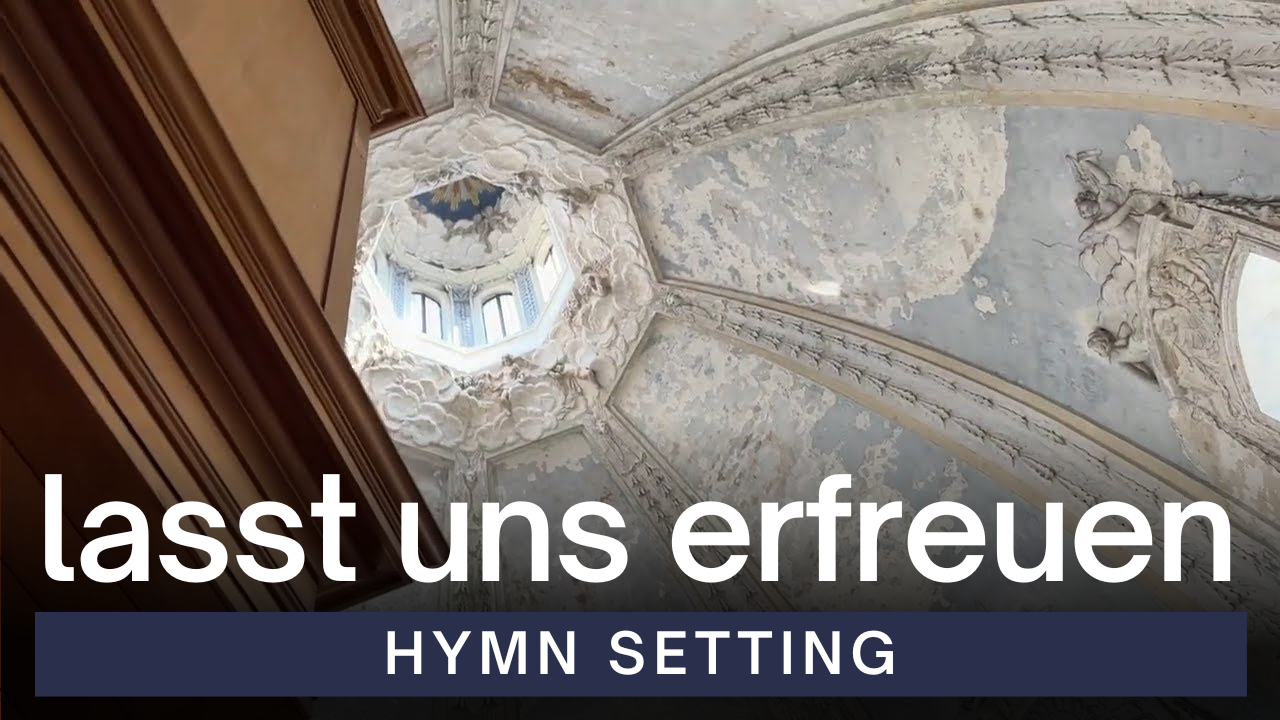
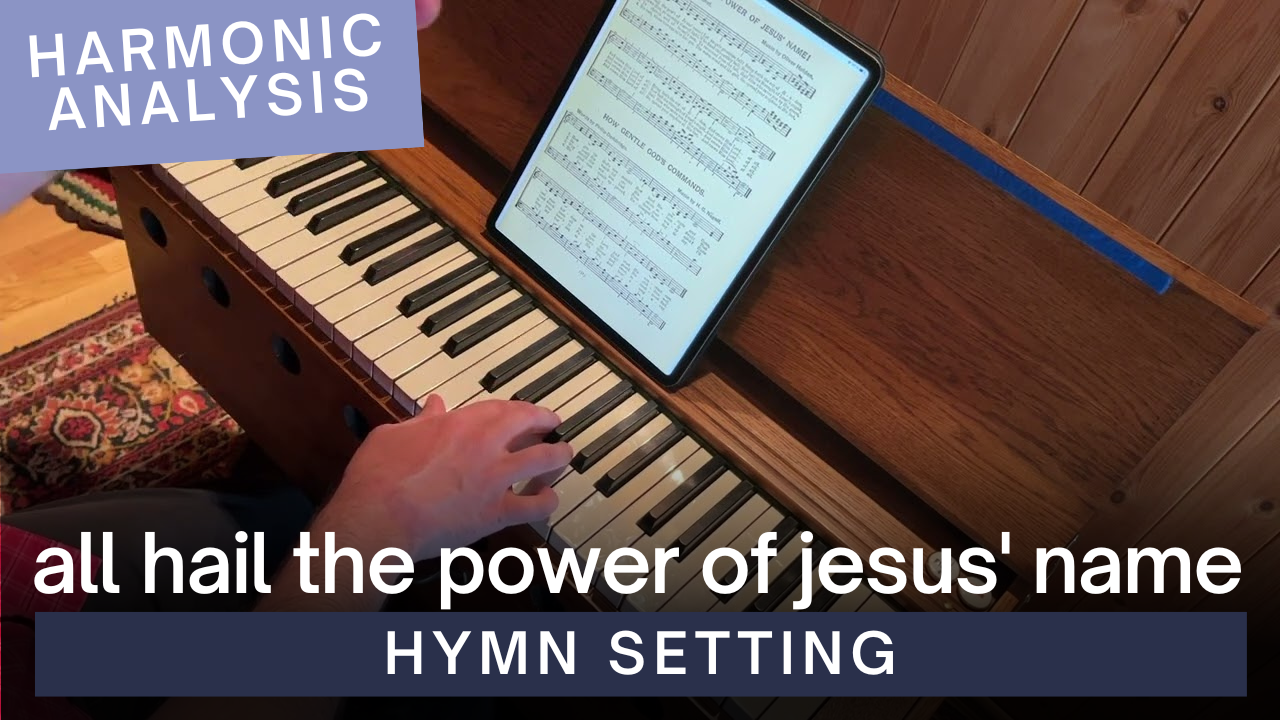

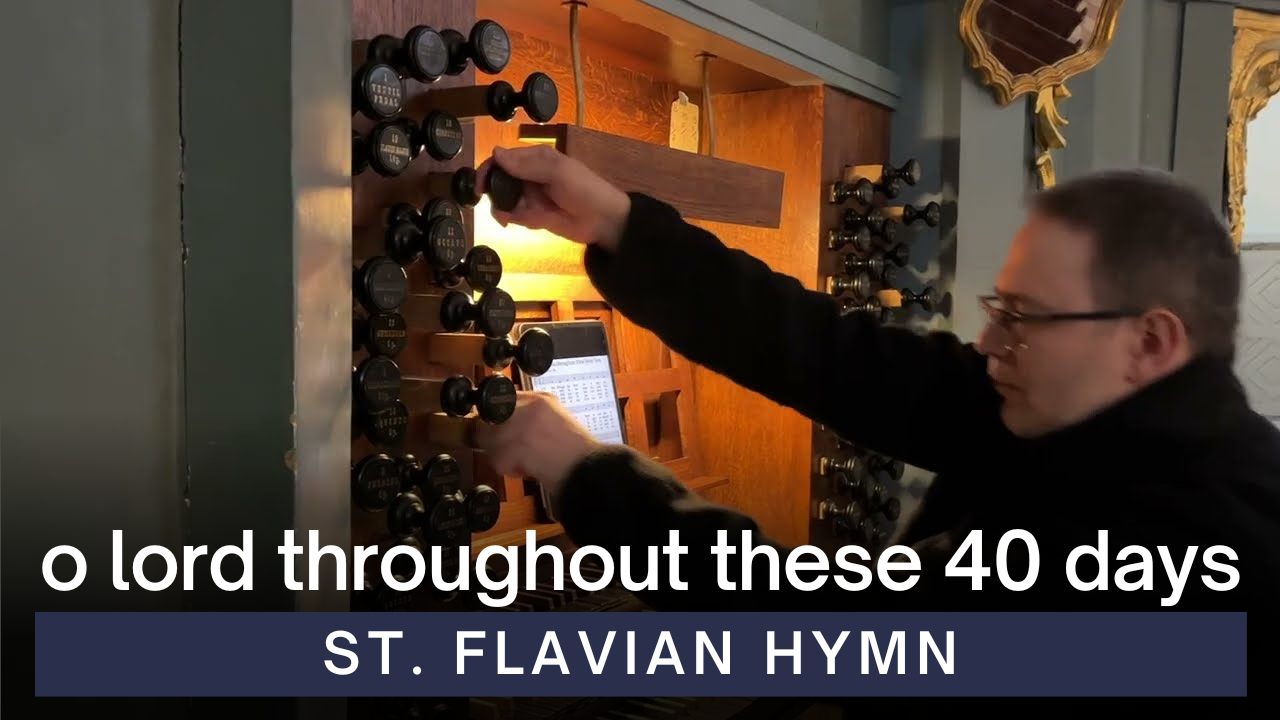
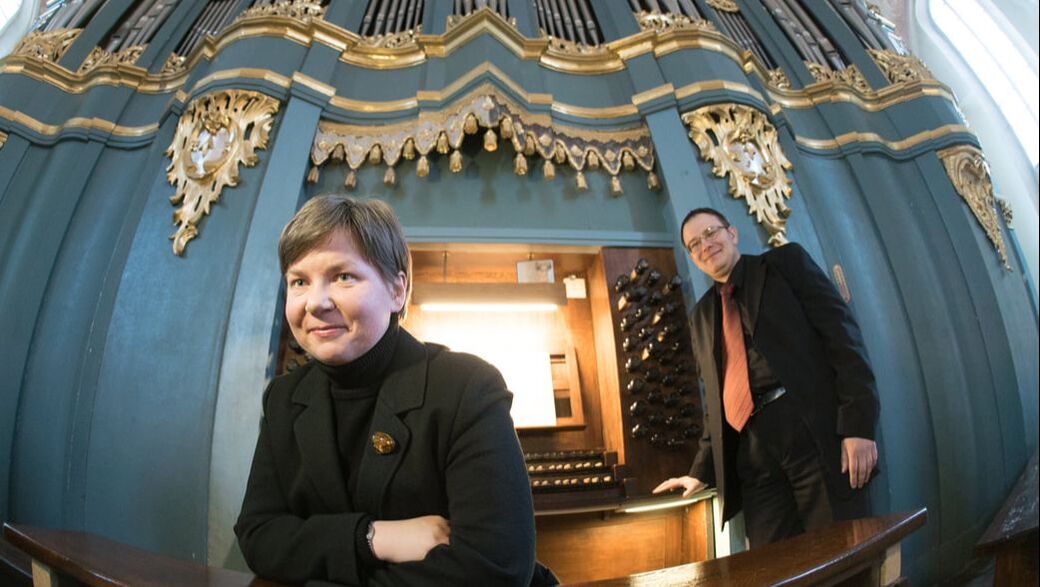
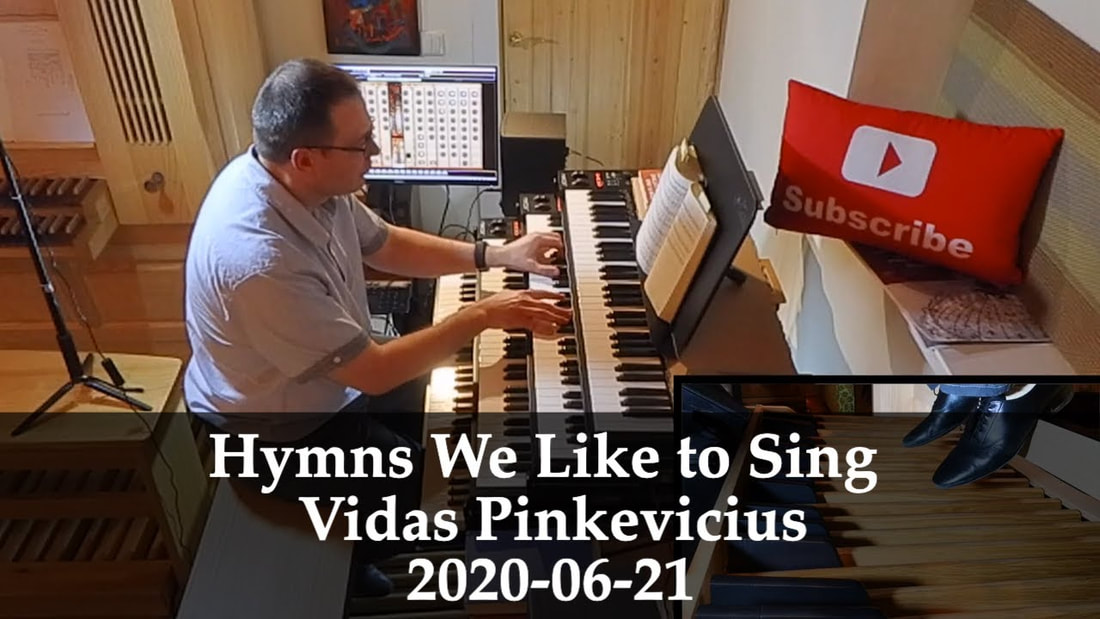
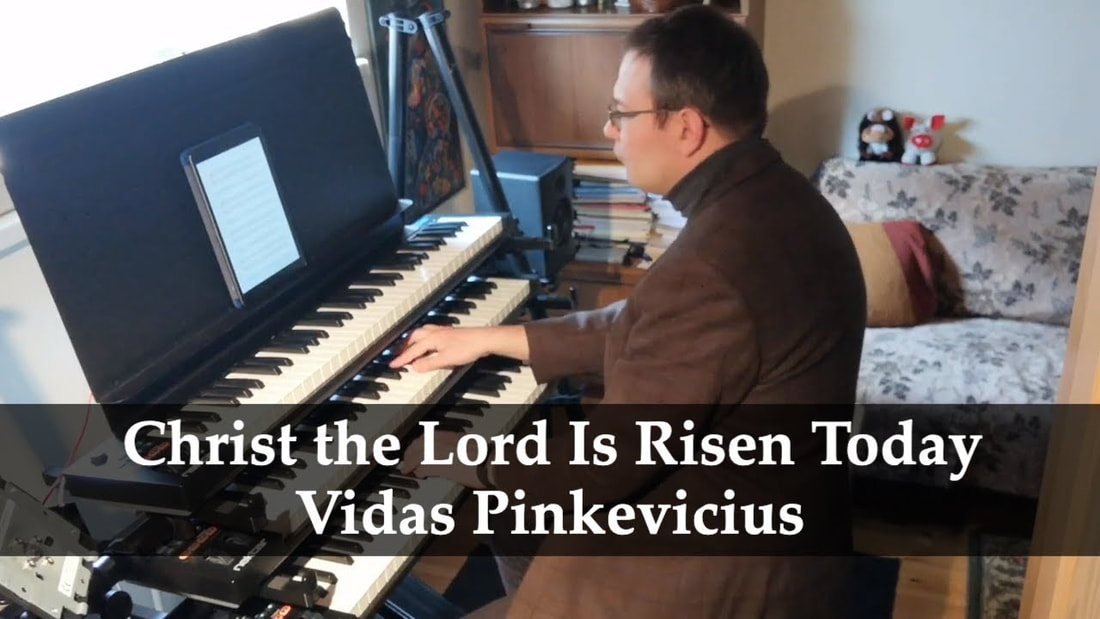



 RSS Feed
RSS Feed